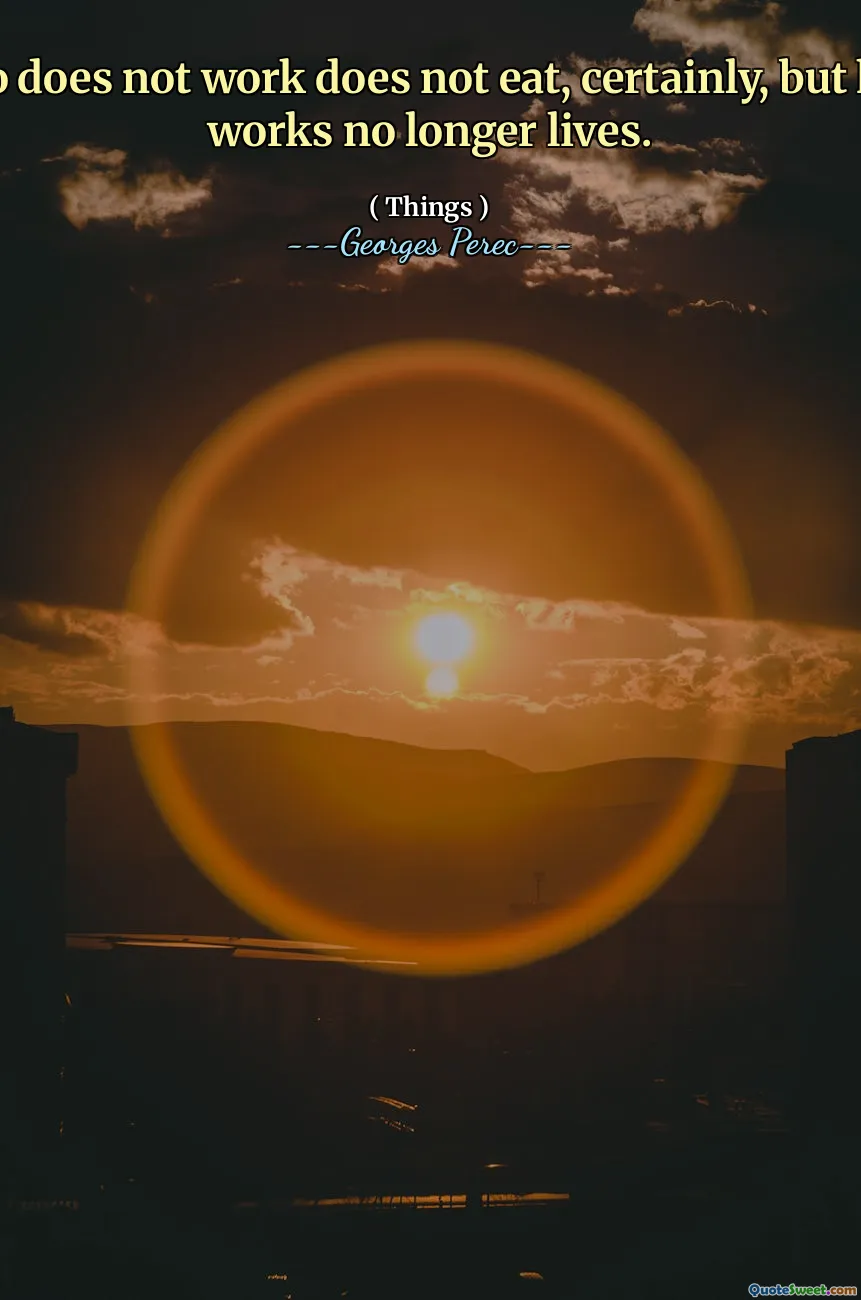
He who does not work does not eat, certainly, but he who works no longer lives.
This quote presents a profound commentary on the relationship between work, survival, and the essence of life itself. It highlights the fundamental necessity of engaging in labor to sustain oneself, echoing age-old adages about earning one's keep. However, the latter part introduces a critical reflection: while work is essential for existence, overworking can diminish the quality of life, stripping away joy, leisure, and the very essence of living. It suggests that relentless pursuit of productivity may lead individuals to forget that life is more than just survival—it encompasses passion, community, rest, and personal fulfillment.
Reflecting on this, one recognizes the delicate balance required to lead a meaningful life. In modern society, where workaholism is often glorified, this quote serves as a gentle reminder not to lose sight of personal wellbeing amid relentless labor. It underscores that living fully involves embracing moments of leisure, connection, and self-care. The quote prompts us to consider whether our pursuits are genuinely enriching or merely existential obligations. It resonates with the idea that a life solely defined by work can become hollow, and that true vitality involves a harmony between effort and repose.
Moreover, this perspective urges us to question societal values that prioritize productivity above all. If we only work to survive, are we truly living, or are we just existing? Finding joy and purpose outside work becomes essential for personal fulfillment. Ultimately, this quote encourages a reflection on how we define success and happiness and reminds us that while work is necessary, living well involves more than just labor—it involves cultivating a life rich in experiences, relationships, and self-awareness.






